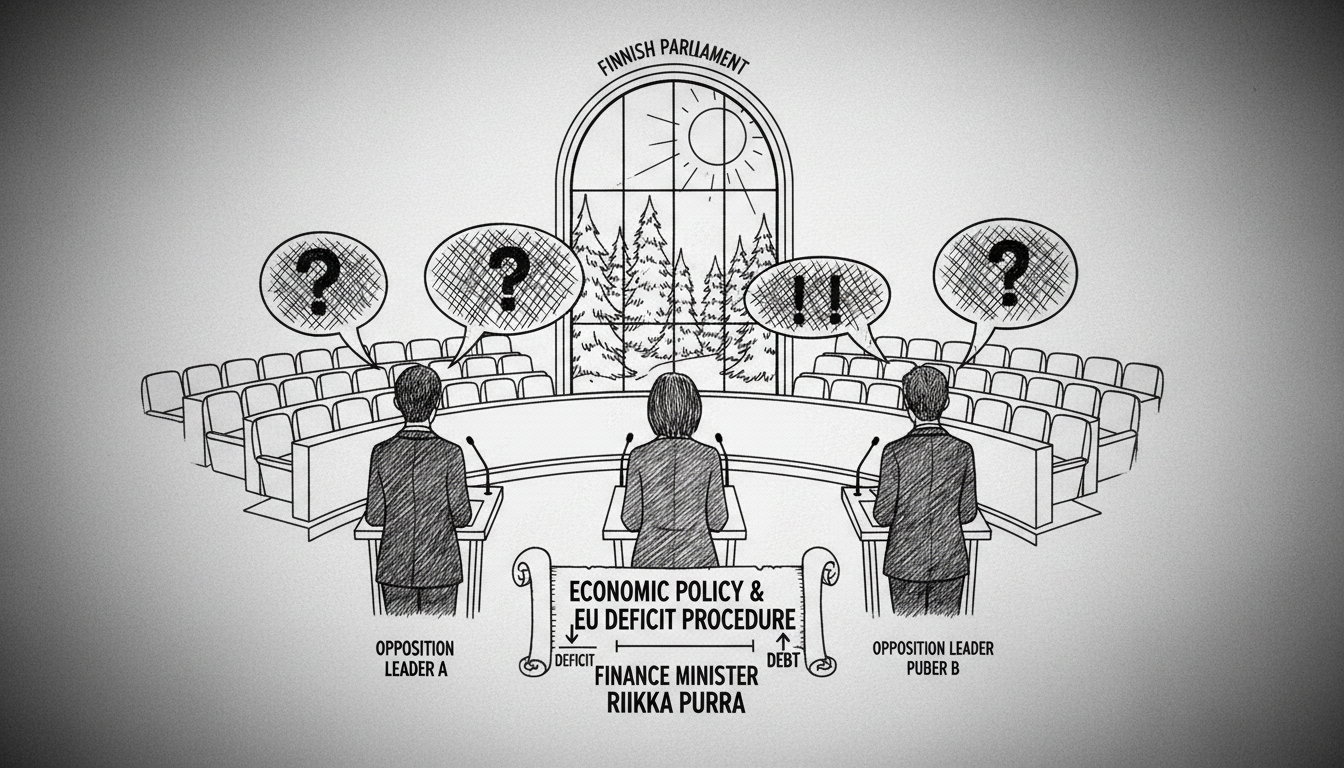Finland's Parliament witnessed heated exchanges during Thursday's question session as opposition parties grilled the government over economic policies. Finance Minister Riikka Purra delivered sharp responses to critics who challenged Finland's placement under the EU's excessive deficit procedure. The confrontation revealed deep divisions over fiscal management and tax policies that will shape Finland's economic future.
Social Democratic Party chair Antti Lindtman accused the government of leading Finland directly into the EU's monitoring mechanism. He noted Finland now shows among Europe's weakest growth figures and employment development. Lindtman warned the country risks becoming the EU member state with highest unemployment rates without policy changes. He demanded clear conclusions from the government about addressing this economic situation.
Finance Minister Purra defended the government's economic approach with notable directness. She told Lindtman, 'I know you must certainly be a more honest man than you appear during question time.' Purra accepted responsibility for current economic and financial policies but firmly rejected accountability for previous administrations' decisions. She argued the current government's adjustment burden would be substantially smaller if former Prime Minister Sanna Marin's government had taken more action.
The parliamentary chamber erupted when Purra suggested opposition criticism reflected hypocrisy rather than genuine policy concerns. Centre Party representative Tuomas Kettunen described Purra's response as 'the peak of arrogance' that drew audible reactions from lawmakers. Kettunen also criticized Prime Minister Petteri Orpo's absence from budget discussions due to his business delegation trip to South Africa. He asserted that 'long-distance travel now took priority over Finland's future' for the prime minister.
Tax policy emerged as another contentious issue during the session. Opposition members repeatedly questioned whether the government should cancel planned corporate tax reductions. The government intends to lower corporate tax from 20 percent to 18 percent beginning in early 2027. The Centre Party proposed substantial tax relief for middle incomes instead, asking if the government would support reducing middle-income taxes rather than high-earner reductions.
Purra dismissed the Centre Party's alternative budget as 'air' because it allegedly lacks financing for expenditures and tax reductions. She noted the overwhelming majority of government tax cuts target low and middle-income workers. The Centre Party would finance its proposals partly by canceling the corporate tax reduction, though this tax change doesn't appear in next year's budget.
This parliamentary debate occurs against Finland's challenging economic backdrop. The country faces the EU's excessive deficit procedure while navigating post-pandemic recovery and geopolitical uncertainties. The government maintains that current austerity measures will ultimately protect Finland's welfare society, though opposition parties question this approach's effectiveness. These fundamental disagreements about economic direction will likely continue dominating Finnish political discourse through the coming parliamentary sessions.

